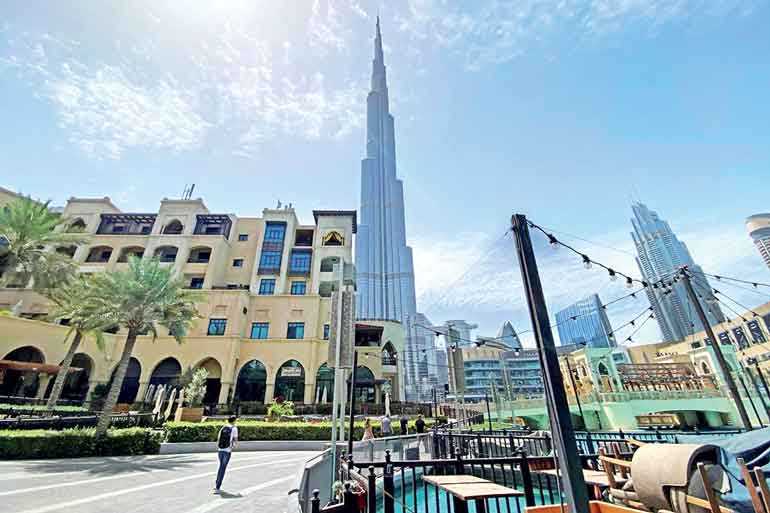Saturday Feb 21, 2026
Saturday Feb 21, 2026
Tuesday, 12 May 2020 00:45 - - {{hitsCtrl.values.hits}}

People walk outside Dubai mall after the UAE government eased a curfew and allowed stores to open, following the outbreak of the coronavirus disease (COVID-19) in Dubai, United Arab Emirates - Reuters
DUBAI (Reuters): The number of coronavirus cases in the six Gulf Arab States surpassed 100,000 yesterday, with 557 deaths, according to Reuters calculations based on official figures.
Coronavirus infections in the energy producing region had initially been linked to travel. But despite taking early measures to combat the virus, Gulf States have seen a spread among low-income migrant workers living in cramped quarters, prompting authorities to ramp up testing.
Saudi Arabia, the largest Gulf state with a population of about 30 million, has the highest count at 41,014 infections and 255 deaths. It recorded 1,966 new cases and nine new deaths yesterday. The daily number of new cases in the kingdom first crossed the 1,000 threshold on 18 April. Health authorities said in April the virus could eventually infect between 10,000 and 200,000 people in Saudi Arabia.
Elsewhere in the region, the tiny State of Qatar on 5 May overtook regional business hub the United Arab Emirates as having the second highest infection count among the six States.
Qatar, where health authorities last Thursday said the outbreak had entered its peak, has recorded a steady increase in cases to 23,623 while the number of deaths has held steady at 14.
The UAE total has so far reported 18,198 infections with 198 deaths.
Some Gulf Arab states eased anti-virus containment measures with the start of the Muslim holy month of Ramadan on 24 April.
The UAE and Saudi Arabia relaxed curfews that had been in place since mid-March. Saudi Arabia said on Thursday it had formed a Police unit to monitor violations of its lockdown rules and banned gatherings of more than five people.
Kuwait, where there has been a recent spike in the number of new cases, on Sunday imposed a full curfew for 20 days, exempting only essential services, instead of the 16-hour curfew that had previously been in place.
Dubai emirate, the UAE’s tourism and business hub, allowed malls and dine-in restaurants and cafes to reopen with limitations on 23 April. Some other emirates have followed suit. Saudi Arabia permitted commercial stores, including malls, to reopen on 29 April with restrictions until 15 May.
Qatar has maintained the closure of public venues with the exception of those providing essential services and goods.